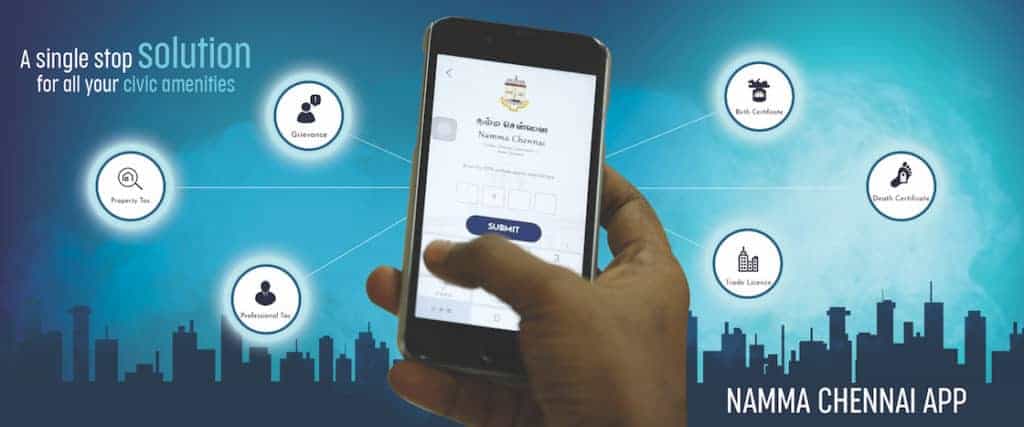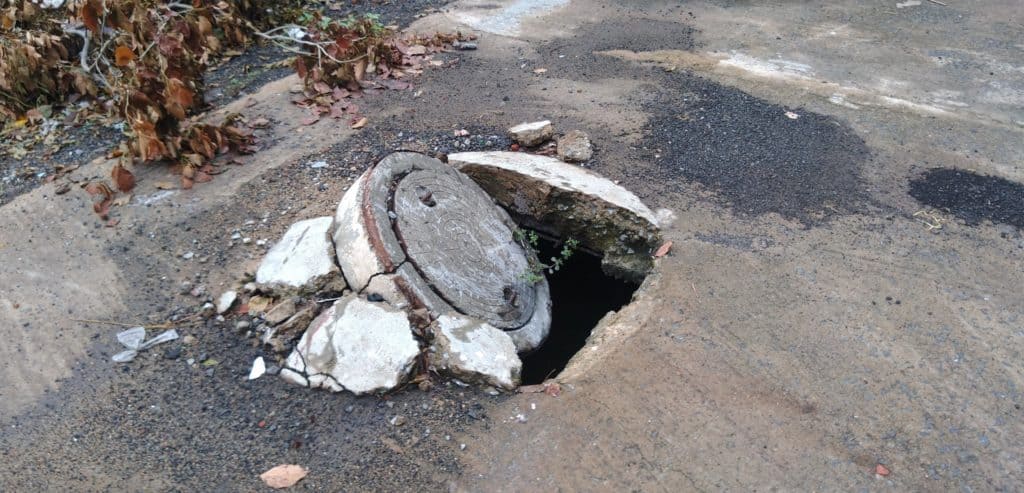A tragedy awakens public authorities like none other. Vehicles screeching to a halt near potholes, more often than not, stay out of their earshot until a gruesome accident jolts them. And it was the unfortunate demise of a 32-year-old tech professional, Mohammed Yunus, near Little Mount on Anna Salai, that has put the spotlight back on potholes in Chennai — a problem that is often brushed aside as “mundane.”
The Highways Department swiftly carried out patchwork across the entire road following the incident. A senior engineer at the department, who wished anonymity, said that a complaint was filed with the police against a private telecom company for unauthorised road-cutting that led to the accident.
Placing the blame squarely on a private firm, however, did not go down well with activists. “The Assistant Divisional Engineer, who failed to fill up the pothole, must be arrested for dereliction of duty,” says David Manohar of Arappor Iyakkam. Meanwhile, the police arrested the bus driver, who, as per the CCTV footage, ostensibly had little role to play in the accident. The Traffic Investigation police have also issued a notice to authorities of the Highways Department seeking an explanation on the alleged negligence.
Read more: Explainer: How are roads in Chennai laid?
The Greater Chennai Corporation (GCC), too, jumped into action. The civic body identified a total of 942 roads to be repaired within its jurisdiction and deployed a 1000 workers to fix them. The GCC has allocated a total of ₹1.5 crore — ₹10 lakh for each of its 15 zones — for filling up potholes using wet mix macadam, concrete, or cold mix.
But wait, how did so many — close to a thousand — roads reach this stage without the local bodies noticing them all this while?
Proactive action missing
On days when potholes don’t kill, people are often forced to badger officials to respond to their complaints, say activists.
In the case of the Highways Department, citizens can raise a complaint through email. “Any citizen can complain using the email addresses available on the website. The complaints will be attended to immediately,” the senior engineer said. At the time that this article was written, www.tnhighways.gov.in was not working, while another site www.tnhighways.net without a gov domain name does not have email addresses, but instead has a form for sending messages.
K Allahbagash, a resident of Royapettah, says that he never gets responses to emails sent to the Highways Department, but the complaints are usually resolved. “When they are not, I keep sending them reminders.” That said, emails are unlikely to be used by a vast majority of the public to file complaints.
On the other hand, grievance redressal through the Corporation, which controls a vast majority of roads in the city, including 471 that have buses plying on them, is not a cakewalk either.
Persistence is the mantra to get officials to act, say users and activists alike. “I have come to terms with the reality that the government will only do 50 per cent of the work, and for the other 50, we have to make them do it,” says A Sam Ponraj, a resident of Kottivakkam, who frequently files complaints using the Namma Chennai app.
Read more: “We get 200 complaints every day on the Namma Chennai mobile app”
Experiences with the ‘Namma Chennai’ app

Launched in 2018, the Namma Chennai app, which allows people to lodge civic complaints and avail other services remotely, is far from being user-friendly. The app was introduced in addition to the toll-free helpline number 1913 and the complaint portal on the GCC website. As per the civic body’s guidelines, potholes in Chennai are to be filled up within three days once a complaint is raised.
But many people find that their complaints get marked as resolved even without the problem being addressed. “Also, when I raise a complaint on the app regarding a streetlight, the staffers post a picture of a streetlight in some other place and claim that the complaint has been resolved,” says David.
This often happens when there isn’t a quick-fix solution either. “When I raised a complaint on water stagnation, they merely said that a stormwater drain needs to be constructed and closed the complaint,” says Naveen Kumar Sathya, a resident of Nerkundram. “But, the officials must keep the complaint open until the stormwater drain is constructed.”
Everytime a complaint gets “resolved” prematurely, seasoned users of the app make sure to reopen them immediately. David Manohar says that Arappor had demanded a feature to escalate complaints within the app itself.
Besides reopening complaints, a few activists have devised ingenious ways over time to get the problems fixed. “If there is water stagnation in my area, I complain to three different departments — the AE who is incharge of the road, the sanitary inspector and the conservancy inspector to make sure it is addressed,” says Allahbagash, a resident of Royapettah, adding that his strategy has been successful so far.
Discrimination of complainants?
Further, the field staffers of the GCC allegedly discriminate between first-time users and their seasoned counterparts. “Complaints are prematurely marked as resolved especially for first-timers, who often need to follow up repeatedly,” says Sam, who has actively participated in awareness campaigns for the public on using grievance redressal platforms. “As I usually raise a number of complaints and rigorously follow up on them, all of the issues I have reported so far have been resolved.”
A Corporation official, who did not wish to be named, said that a complaint can be reopened up to two times, each time escalating the issue to a superior officer. In the case of potholes in Chennai, complaints are initially forwarded to the Assistant Engineer concerned, and later escalated to officials including the Executive Engineer, Assistant Commissioner, and Regional Deputy Commissioner if required.

To escalate a complaint on the app, one has to reopen it once it is marked as resolved. However, there is a catch — users say that reopening the complaint is possible only for a limited period of time. “The reopening option is only available for a short while. If one fails to reopen the complaint within a stipulated period of time, you will have to raise a fresh complaint,” Sam says.
The official said that quality-checks are conducted on about a third or fourth of the complaints, in which personnel call up users to know whether their complaints were resolved. “If the citizen is not satisfied with the service, the complaint is automatically reopened,” she explained.
As quality checks are conducted only on a fraction of the complaints and there is no other avenue to post reviews, a majority of them are not followed up on. When a first-time complainant loses faith in the grievance redressal mechanism, she is unlikely to file a complaint again. Ergo, potholes eagerly await their next victim, and in the meanwhile, they annoy motorists no end.
Read more: Knock knock, no response: The tale behind Chennai’s civic mess
Jumping through hoops
Even when there is an attempt to resolve the issue, the process is far from hassle-free. Allahbagash says that the staff sometimes use impolite language, while some others actively discourage the filing of complaints on the app. “The engineers ask us to send the complaints on WhatsApp rather than post them on the Namma Chennai app, because complaints on the app are subject to departmental review,” he adds.
Sam says the officials also seek an explanation once again over the phone, even when the problem is explained in detail in the complaint itself.
Naveen also believes that the privacy of the complainant should be maintained. “The identity and the phone number of the complainant are disclosed to the field staffers, which sometimes leads to workers harassing us,” he says.
GCC Deputy Commissioner (Works) and senior engineers were not available for comment despite repeated attempts.
Worse to come?
With the recent spell of intense rains, potholes in Chennai could turn into death traps as motorists would not even be able to see them because of waterlogged streets.
Barely a week after the techie died, a couple almost came under the wheels of a government bus in Otteri, as the rider stepped into a rainwater-filled pothole and lost his balance.
To prevent such mishaps, a few thoughtful residents have stepped in where the civic body failed to step up. For instance, in Adyar, a few residents flag a dangerous pothole in Adyar by placing a sapling and broom on a chair.
While the GCC had carried out desilting of canals and drains ahead of the monsoons, little attention was given to potholes. With intense rains expected over the next few days and about two more months of northeast monsoons remaining, battered roads are likely to become a pain in the neck — quite literally for many.
Historically no ruler has made development for common man. The king’s have been kings. Giving one here and one there is highlighted by the mundane media. No ruler has made people realise, else they won’t be kings or rulers.
It’s absolute apathy by the Nexus of politicians, beaurocrats and corporation. This government will blame previous governments. Karunanidhi, MGR, Jayalalithaa, edapadi palaniswamy and now stalin visit the rain hit areas to distribute food. It will repeat next year and the next and the next.